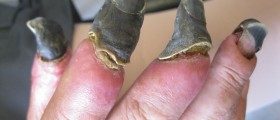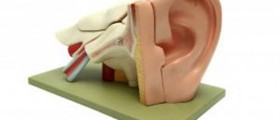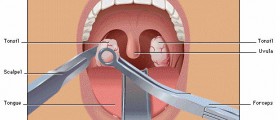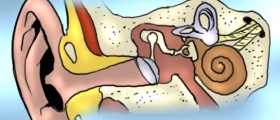
Ear infections usually take place after a common cold when the viruses and bacteria work their way up to the ear area, triggering infections, leading to blockages, pain, hearing loss and other health problems. Fortunately, by noticing the symptoms of an ear infection, you can react timely, seek medical attention and have the problem treated without allowing it to escalate.
Facts about Ear Infections
Both adults and children can suffer from ear infections which can be both outer and acute middle ear infections, the former one being called otitis externa, usually caused by ear contact with contaminated water, while the latter is called otis media, triggered by a bacterial infection. The fluids which get in contact with the ear contain harmful fungi and bacteria which potentially infect the area. On the other hand, the bacteria affecting some other parts of the organism, reach the Eustachian tube, connecting the nasal passage with the inner ear and trigger excessive production of mucus, causing infections.
Signs of Ear Infections in Adults
One of the most common signs of an ear infection is pain, usually accompanied by a fever. In some cases, ear drainage may be present, especially when the eardrum has been perforated. Moreover, an ear infection may manifest through temporary hearing loss, along with dizziness, ear redness, pressure inside the ear or balance problems. Alternatively, pain when jaws and ear lobes are moved, appearance of pus outside the ear and skin flaking, all belong to the list of common symptoms of ear infection in adults.
Treatment of Ear Infections
Usually, ear infection is not a serious condition and can be treated by applying a cold piece of wet cloth or an ice pack onto the area. Nevertheless, you should see the doctor once the symptoms appear, seeking adequate treatment. Chewing chewing gums with xylitol, removes the pressure in the ear area and prevents further bacterial development. Garlic oil is helpful too, but do not use it if your eardrum has been ruptured. Finally, resting can make all the difference, speeding up the recovery process.
Ear infections need to be dealt with as soon as possible since the swelling and spreading of the infection may press against the eardrum, rupturing it. Do not smoke and avoid getting exposed to cigarette smoke, preventing any irritations from affecting your sensitive ears. If all else fails, you should seek medical attention and undergo surgery reducing the size of the swollen three tiny bones in the ear area. Yet, some ear infections can be successfully treated with ear drops purchased over-the-counter.

















Your thoughts on this
Loading...